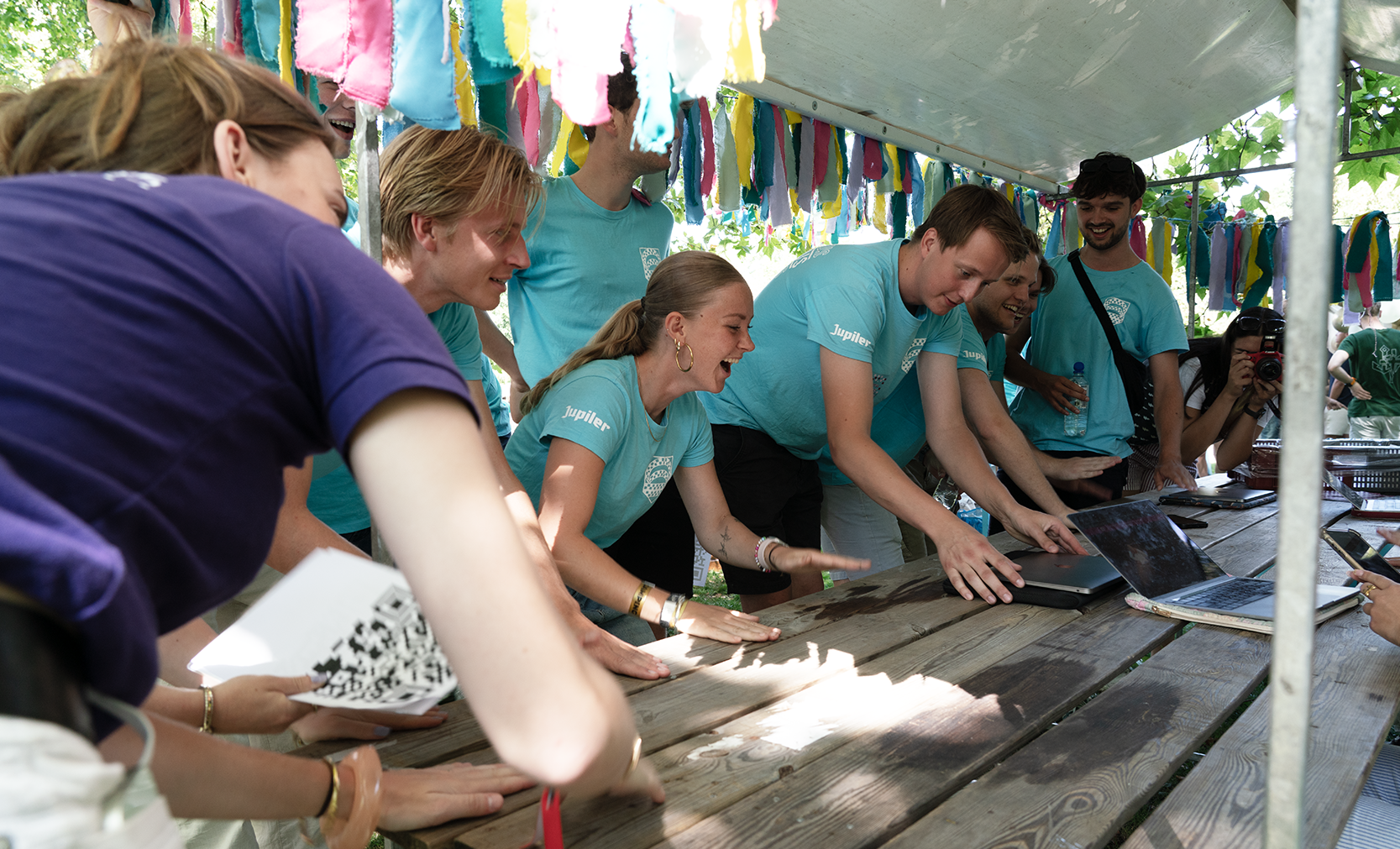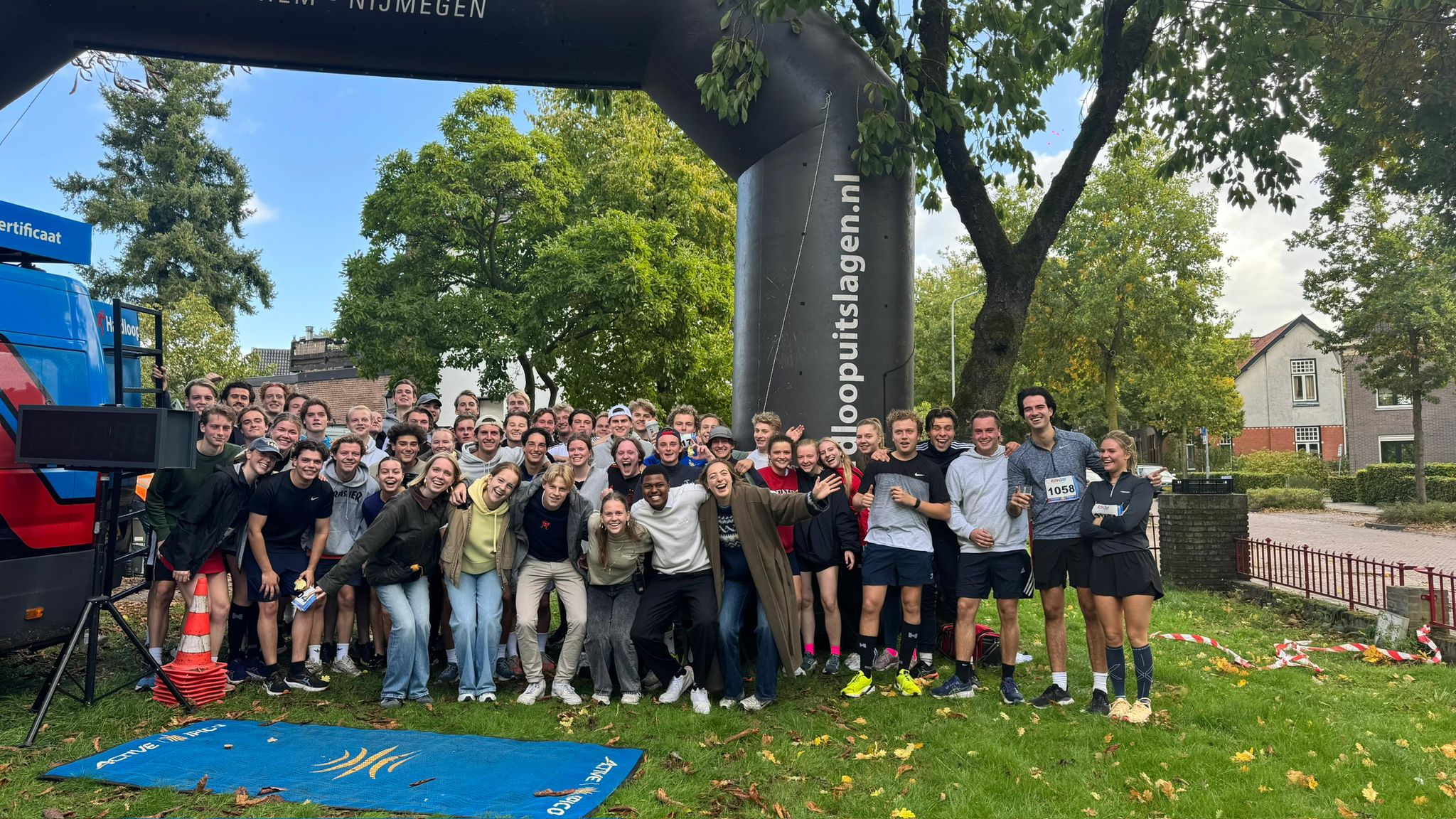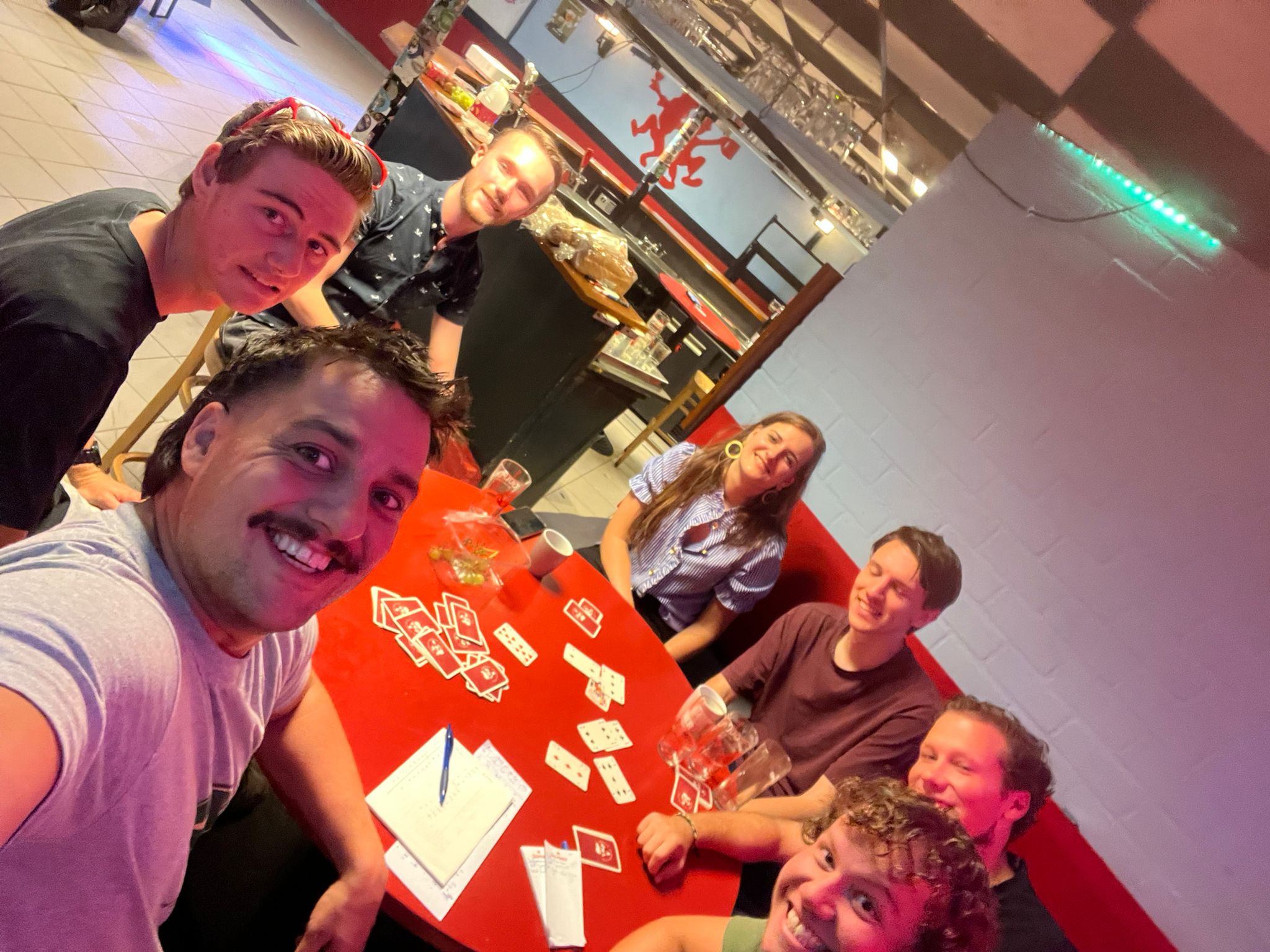Last summer, national student organizations wrote an urgent letter to the minister for Education complaining about ‘board fatigue’. It is getting hard to find people in Wageningen too, we discover when we ask around. ‘By the first deadline, only one person had applied for our seven-member board.’
The Batavia Race, a classic student relay race from Nijmegen to Enschede, had to be cancelled for the first time in 50 years. The fact that Groningen’s introduction week went ahead at the last minute was ‘a minor miracle’, the chair of the student committee told the Dutch TV news broadcaster. In Leiden, five study associations were discontinued last year because they couldn’t find anyone to run them.
In an urgent letter to the minister for Education, various national student organizations pointed to a survey showing that students see a year on a committee or board as a ‘financial risk’. Pressure to perform and the fact that students often take longer to graduate and end up with bigger student loans if they do committee work are also mentioned as reasons for the lack of interest. This needs to change, say the student organizations, because ‘student associations are crucial to university life’.
What is the situation in Wageningen? When we asked around, the larger student societies told us they were still able to find enough people for their committees. KSV Franciscus had ten people apply for the current eight-person board. Chair Matthijs Heutinck: ‘Fortunately, we are still in a position to turn people down as we have enough candidates.’
Ceres managed to get enough applicants too, says its president Daan Smit, but he recognizes the problem: ‘There were a lot of people who were interested but didn’t apply in the end. That was often because they were worried about getting behind or about building up more student debt. It will only become more difficult to fill committees in future with falling student numbers.’
Student debt
SSR-W is also one of the larger societies but it still had difficulty finding people for the board this year, says its chair Sarah Vegter. ‘Our board has seven members and people had to apply in February. In the past, we’d have had 10 to 12 applicants, but this time only one person had applied by the first deadline.’
Even she had her doubts at that point. ‘It’s difficult financially. My first year was still under the student loan system. A committee year means you take at least one year longer to graduate and you have a bigger student debt. You get FOS support (470 euros per month for full-time committee members, ed.), but that doesn’t compensate for all the extra costs.’
A committee year means taking at least one year longer to graduate plus more student debt
After extending the deadline for applications twice, they got nine candidates and were able to form a board after all. Vegter too decided to go for it: ‘I feel an intrinsic urge to do something for SSR-W. I’m also expecting the experience I acquire to outweigh the costs and the delays in graduating.’
Nji-Sri is a somewhat smaller student society and therefore has a smaller pool to fish from. Chair Tom Seijsener: ‘This year, we had four candidates for six posts. So we approached people in person to fill all the posts on the board. Fortunately, we have a lot of active members, which lets us survive despite being a smaller society.’
The sports association Thymos was unable to find enough board members, so they are making do with four members this year instead of the six they wanted. Secretary Matthijs Wimmenhove: ‘The four of us should be able to carry out the core tasks, but we’ll probably have to say “no” more often to new ideas. We’ll see how it goes.’
Doomsday
Then there are the study associations. Their committee posts can often be filled on a part-time basis, letting the students continue with their degree. Does that make it easier to find candidates? Not necessarily, shows Genius Loci, the study association for Landscape Architecture & Spatial Planning. Chair Pieter de Leede: ‘We put a lot of effort into finding committee members but we were still only able to fill four of the six posts. We tried everything, from lunches and drinks events to videos on the life of a committee member. We also approached people we saw as serious potential candidates personally. We even put up a Doomsday poster with a warning for our members: no society without a committee.’
Assigning credits for committee work might help
A new committee will be appointed in February. ‘That will be interesting.’ De Leede says other study associations are having difficulties too. He thinks a bigger financial allowance would help encourage more people to come forward. ‘If you spend a year on a committee, you can’t do all the courses and so you inevitably get behind. That means more tuition fees, more rent and more grocery bills. Extra compensation in the form of FOS support, or assigning credits for committee work, would help make it more appealing.’
Intrinsic motivation
As the coordinator of student facilities at the Student Service Centre, Rutger Kroes has a lot of contact with the societies and associations, including about the FOS support. He can understand the societies seeing a bigger allowance as a way to encourage more people to do committee work. ‘But in the end it’s about your intrinsic motivation. You get an allowance, but that’s not the same as a salary and it never will be. Anyway, the FOS allowance was increased two years ago from 350 euros to 470.’
Kroes doesn’t expect more money to be made available given the higher education cuts. Even so, he sees a glimmer of hope: ‘We are now into the third year of the basic grant, so there are fewer active students who have to worry about the student loan system. The slow student fine is no longer an issue either, so doing a year on a committee should now be pretty manageable.’ It is still an investment, he says. ‘But one that’s worth it. The vast majority say afterwards they are delighted they did it.’

 Getting freshers enthusiastic about student society life at the info market in the Arboretum, AID 2025. Phot Yijun Zhu
Getting freshers enthusiastic about student society life at the info market in the Arboretum, AID 2025. Phot Yijun Zhu 

